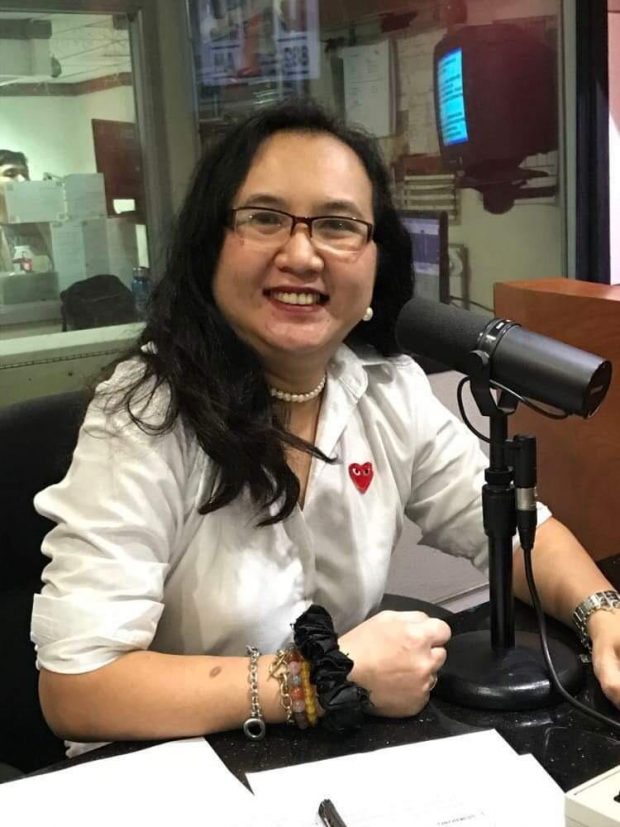Fact checking and media self-regulation

Alin Ferrer-Garganera
Text of the speech delivered by Alin Ferrer-Garganera at the World Journalists Conference (WJC 2022)
“Thank you for inviting me to make a sharing in this conference. I hope to make a contribution by answering the following questions. Why is fact-checking important? Why should we self-regulate as media? Then I will share some fact-checking initiatives I came across in the past months. Then I will share my thoughts about the challenges of fact-checking social media. Finally, I will end with some of my reflections as a Filipino journalist.
First, why is it important to do fact-checking? As a practicing journalist, I think it is important for us to be consistent. As journalists we must be truthful and accurate about what we write and to be sure that what we present on air – thru radio or television – is the truth, and that they accurately description of what happened. Whether we are writing straight news, a feature article or an opinion piece, the contents must be factual. It cannot be figments of our imagination. Even if it is an opinion piece, we must base our arguments on facts and not invented data.
We must go back to the basic elements of journalism, as forwarded by the American Press Institute. As journalists, our primary obligation is to the truth and we must always observe the discipline of verification.
For us journalists, to write, talk or spread misinformation and disinformation can be dangerous, sometimes even fatal for the vulnerable sectors and may put people at risk.
It is good to be reminded that journalism is the first draft of history. If we spread lies, then we are contributing to revising history or revisionism.
Now, why should we self-regulate as media? I see at least three reasons why this is crucial.
As humans, we DO NOT ALWAYS have the complete facts or the most complete picture. We have natural human limitations. We can’t see or hear everything. No matter how diligent we are with our research and validation, there is a chance that we may overlook something or someone. Also, as individual journalists and reporters, we are often informed by our own bias and subjectivity. Our minds have been shaped by our own learnings from school, and our interaction with family and society. We have created opinions based on what we read and what we have experienced first hand. We can’t always be objectively detached to what we report or write about. Finally, and this is the more dangerous reason for me, sometimes our corporate owners try to influence our work .
This third reason is important to self-regulate, even as we recognize that our media outfit must receive some form of income or profit. But we must ensure that corporate motive to profit does not become the prime motivation in producing our content as responsible journalists.
I have a strong personal conviction that we as journalists must reject the regulation that come from states (or governments) or from the corporations that technically own our media outfits. Yes, media outfits need sound organization and financial management. But profits alone should not be the basis for any editorial decision.
In the past few months and during this pandemic, I have come across two international fact-checking initiatives. These are 1) The International Fact Checking Network or IFCN and 2) the Credibility Coalition. I found them very interesting, although I have not been personally involved in any of their networks. In the interest of time, I will not elaborate on them, but are sharing the links to their online content.
IFCN – https://www.poynter.org/ifcn/
Credibility Coalition – https://credibilitycoalition.org
I would like to focus now on some challenges in fact-checking social media. We must recognize that social media is a totally different animal from mainstream media that we are more familiar with. At the start, social media content production is decentralized. The articles and videos are not being written or produced in a central office or the news desk. Anyone with a camera and a set of ideas can produce social media content. Physical location is irrelevant. All they need is a good internet connection.
And unlike us, social media content is not subject to editorial review. There are no section editors or executive producers who can advise what is accurate or not, or if something is a verifiable fact. Finally, social media content creators get paid by the number of hits or likes, not by the facts or truth that they create. They can actually disregard facts and truths, in exchange for likes, follows or shares.
Let me now share a few of my reflection points as a Filipino journalist. I have seen the social media world outpace my writing and radio career. It is important to keep up with technology, but it is not necessary to do all social media platforms. I maintain Facebook accounts, for personal use, and one for professional connections and as the public platform our radio program. We also have separate YouTube and Twitter and Instagram accounts, but I let the other younger reporters and social media staff to handle them.
In terms of doing fact-checking, it believe it is beneficial to join a local fact-checking group. I do not have actual personal experience, but I am aware that they offer training courses and other materials that can be effective in enhancing our skills as reporters and media practitioners to do our own fact-checking.
My lifelong lesson has been there is no short-cut to being factual. Research will always work, and we must never get tired of doing verification, until we are confident we are factual and near to the truth. Lastly, I think social media is both a blessing a curse for journalists, but that is maybe for another conference.
Thank you very much.”

























































